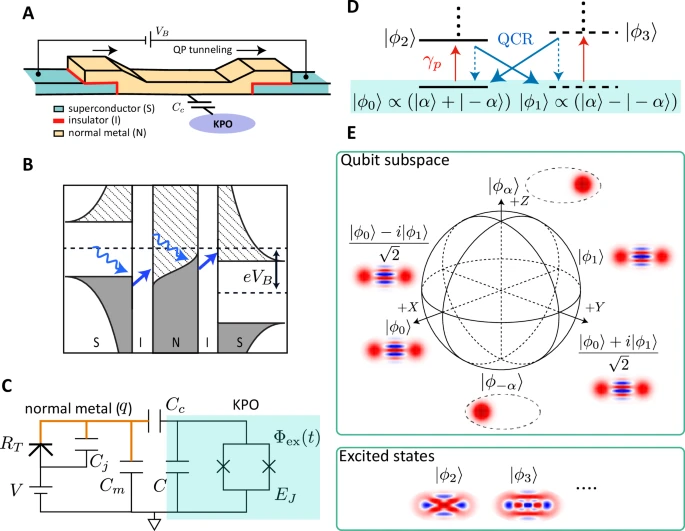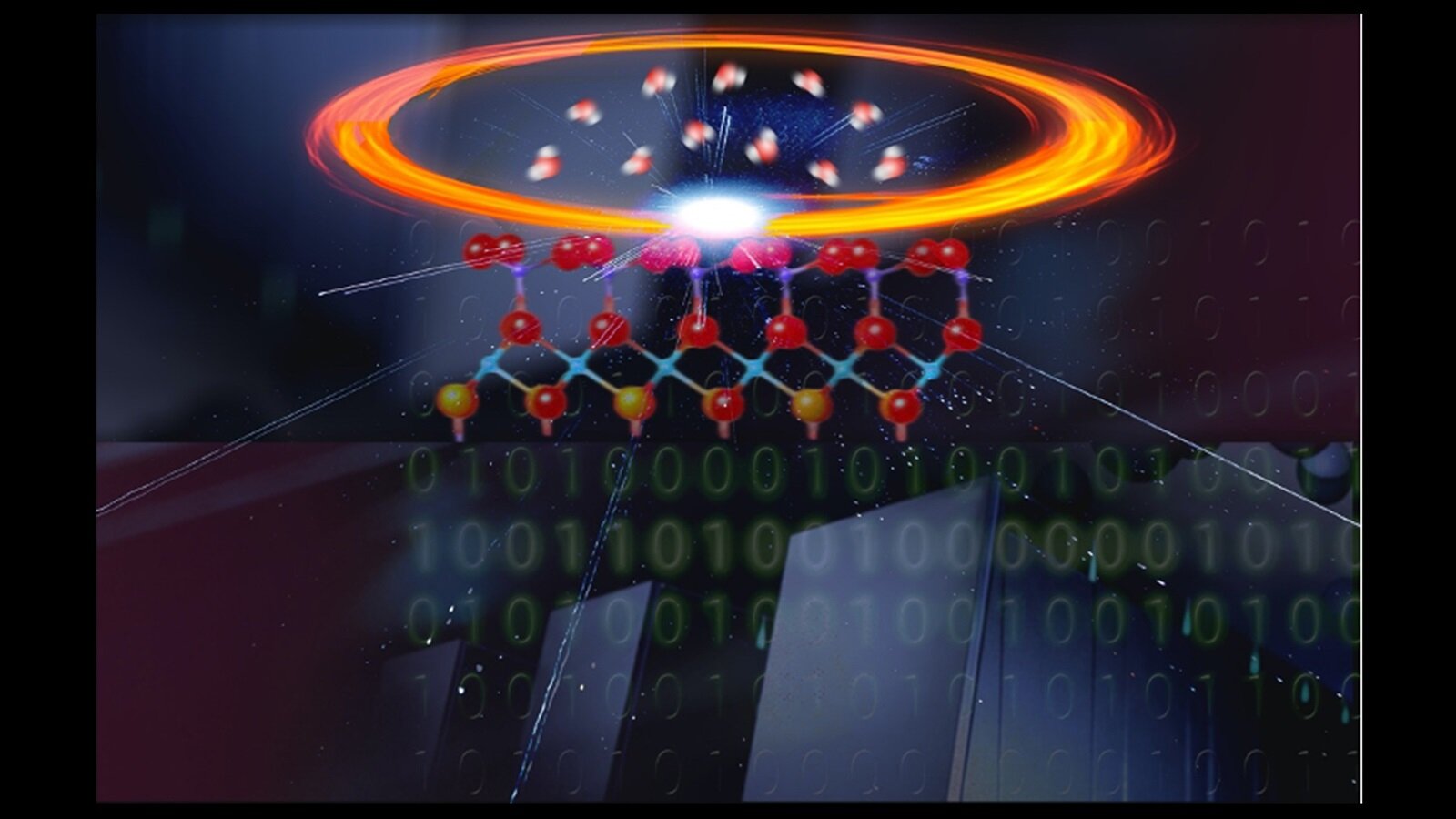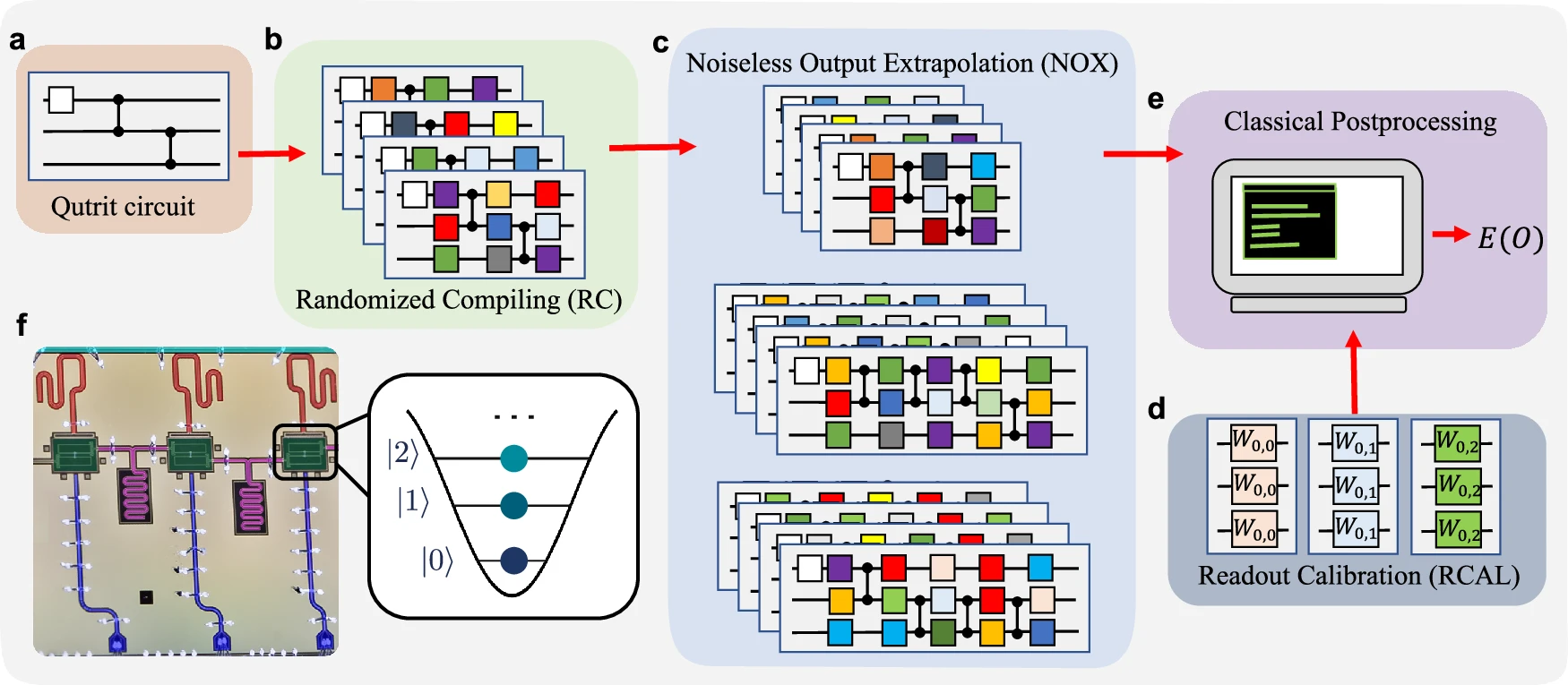Kerr-cat qubits, implemented through periodically driven superconducting nonlinear resonators, represent a promising advancement in quantum computing technology. These qubits leverage two meta-stable states of driven superconducting resonators and are characterized by their asymmetric error profile, where bit-flip errors occur far less frequently than phase-flip errors. This bias in error types offers significant advantages for quantum error correction, requiring less overhead compared to systems with balanced error distributions.
However, these qubits face a significant challenge: pure dephasing can cause excitations that push the system outside the qubit subspace. These leakage errors are particularly problematic because traditional quantum error-correction protocols are designed to handle errors within the qubit subspace, not transitions to higher energy states. While single-photon loss can help return the system to the qubit subspace, it introduces phase-flip errors, creating a delicate balance between error mitigation and qubit stability.
This research presents a solution through Quantum Circuit Refrigerators (QCRs), which utilize photon-assisted electron tunneling at specific junctions. The system specifically employs a superconductor-insulator-normal metal-insulator-superconductor (SINIS) junction capacitively coupled to the Kerr Parametric Oscillator (KPO). By applying a bias voltage across these junctions, researchers can control the rate of energy exchange between the qubit and its environment.
A key feature of the QCR system is its tunability. By adjusting the bias voltage, the deexcitation rates can be modified by more than four orders of magnitude. This tunability is crucial because it allows for precise control over the cooling process, helping maintain the system within the desired qubit subspace while minimizing unwanted effects.
One of the most significant findings is that QCR-induced bit flips are heavily suppressed due to quantum interference in the tunneling process. This suppression, which exceeds six orders of magnitude, preserves the inherent bias in error types that makes Kerr-cat qubits attractive for quantum computing applications. The preservation of this error bias is particularly important as it maintains the advantages for quantum error correction that make these qubits promising in the first place.
The research develops a comprehensive theoretical framework through master equations that describe both the coherence effects and inter-level population transfers caused by electron tunneling. This mathematical foundation helps understand how the periodically driven nature of the system and its degenerate energy eigenstates interact with the QCR cooling mechanism.
The work addresses several complex aspects of the system, including how the periodic driving affects the cooling efficiency and how the biased error nature of Kerr-cat qubits persists under QCR operation. The theory developed is not limited to this specific implementation but can be applied to a broader class of superconducting circuits, making it valuable for the wider quantum computing community.
In conclusion, the research demonstrates that QCRs can serve as effective, tunable dissipation sources for stabilizing Kerr-cat qubits. By providing a mechanism to control unwanted excitations while preserving the advantageous error bias, this technology represents a significant step forward in making Kerr-cat qubits more practical for quantum computing applications. The theoretical framework developed provides a foundation for understanding and optimizing these systems, potentially leading to more robust and efficient quantum computing implementations.
npj Quantum Information, Published online: 15 February 2025; doi:10.1038/s41534-025-00974-6




